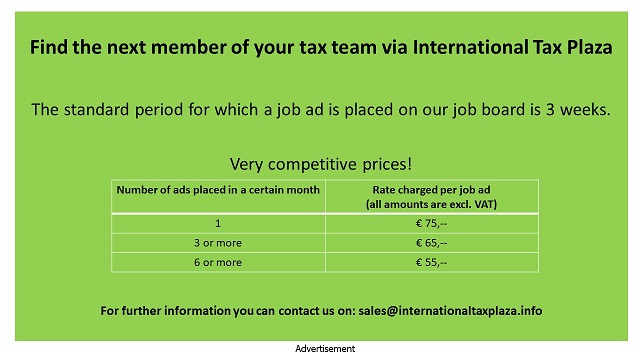On May 14, 2024 the latest meeting of the Economic and Financial Affairs (ECOFIN) Council took place. On May 29, 2024 the Dutch Minister of Finance sent a report/summary of the meeting to the Dutch parliament. This report gives an interesting insight in the discussion that took place regarding the value added tax (VAT) in the digital age package during the meeting.
In the report/summary of the meeting the Dutch Minister of Finance stated the following:
“The ECOFIN Council discussed the proposal on VAT rules for the digital age (VIDA - VAT in the digital age) as published by the (European) Commission. The Belgian Presidency hoped that a Council agreement on the entire package would be reached during the meeting of the ECOFIN Council.
The Belgian presidency briefly explained the proposal, and when doing the presidency indicated that to reach this result during the negotiations many Member States had to make compromises.
The presidency then made it clear that Estonia still had objections to the proposal and asked whether in order to reach a Council agreement Estonia could abandon these objections. The Commission underlined the importance of this proposal to prepare the VAT system for a digital future. The proposal will help to combat fraud, harmonize regulations and close loopholes in relation to the platform economy. The Commission also mentioned that all parts of the package are important and called the on Member States to set their concerns aside as part of the compromise.

Following this, member states were given the opportunity to comment. Estonia took the floor and expressed its support for the compromise text regarding the parts that deal with the digital reporting obligations and e-invoice and a single VAT registration. According to Estonia, however, work is still to be done on the part that deals with the platform economy. Estonia indicated that this part violates the principle of neutrality. In addition, the proposal would create a difference in the VAT treatment of entrepreneurs depending on whether or not they offer their services (letting of short-term accommodation and passenger transport) through a platform. Estonia also indicated that this part is contrary to the principles of the Small Business Scheme. As part of the compromise, Estonia indicated that it could cooperate on a proposal in which the part that deals with the platform economy is voluntary, through a so-called ‘opt-in’.
Based on the Estonian intervention, the Belgian presidency came to a conclusion that the necessary unanimity had not been reached. The Commission once again called for a compromise to be reached. The Belgian presidency closed the subject by indicating that its goal is that still a Council Agreement on the matter is reached during the Belgian presidency, but don’t see a clear way forward in the compromise as proposed by Estonia.”
The report of the meeting as sent by the Dutch Minister of Finance to the Dutch Parliament can be found here. (Available in the Dutch language only)
Copyright – internationaltaxplaza.info
Follow International Tax Plaza on Twitter (@IntTaxPlaza)




